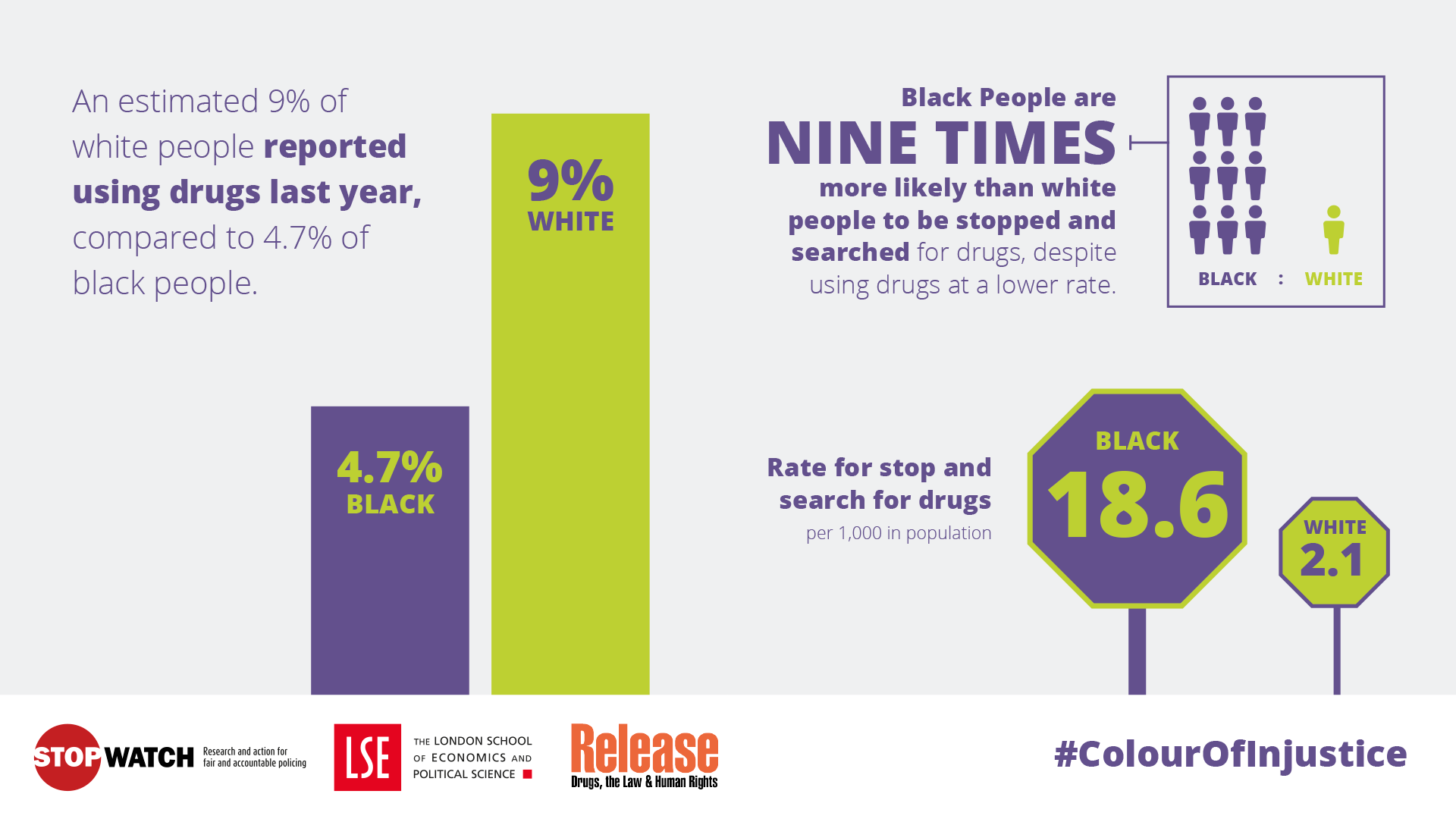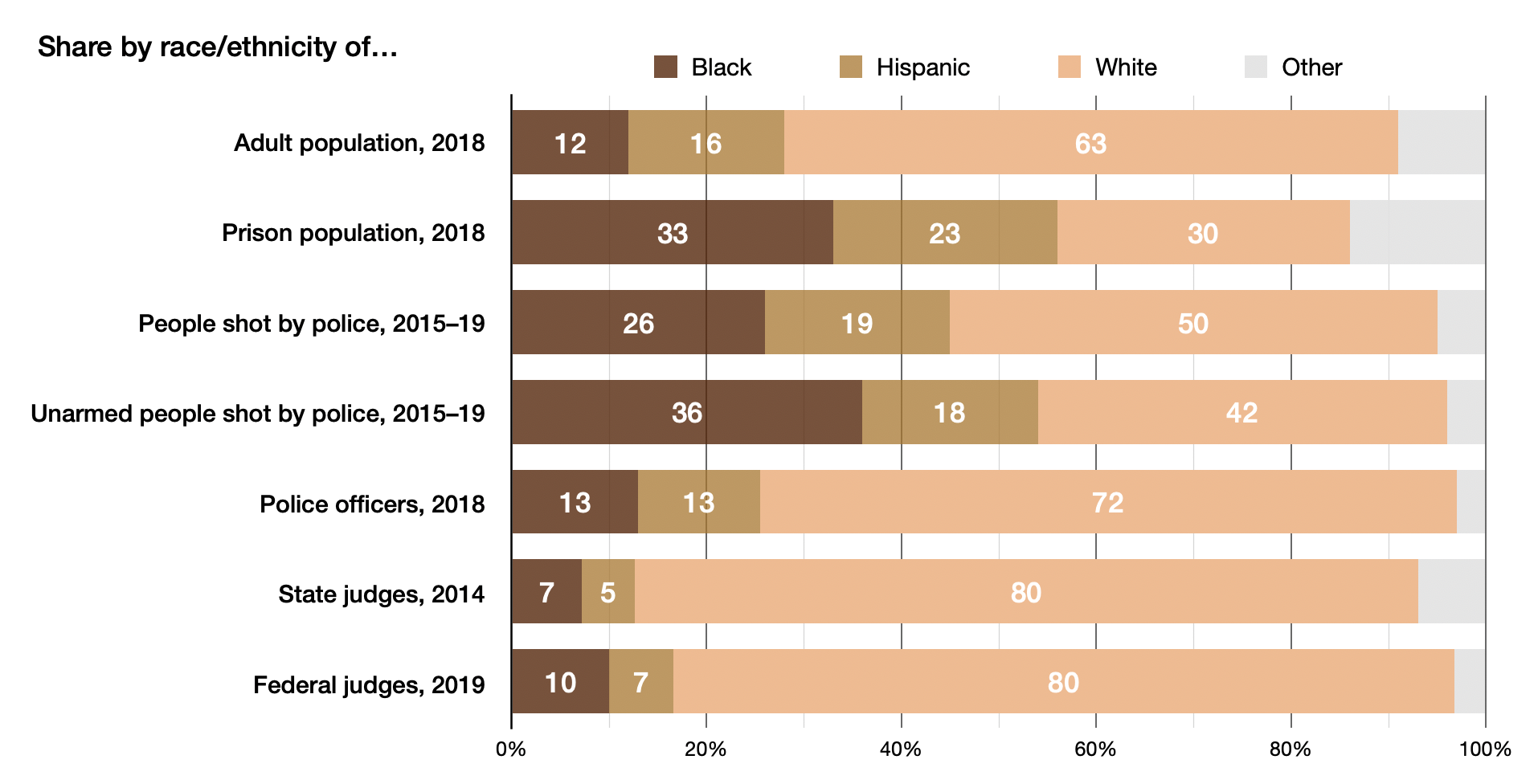So, what is CRT, and specifically, what benefit does it have?
The War on Drugs: A Prime Example of Critical Race Theory and its RelevanceCritical Race Theory (CRT) is an academic framework and analytical tool used to examine and understand the role of race and racism in society. It emerged in the late 20th century as a response to the limitations of traditional civil rights approaches in addressing persistent racial inequalities.
At its core, CRT seeks to explore and challenge the ways in which race intersects with other social identities, such as gender, class, and sexuality, and how these intersections shape individuals' experiences of discrimination and privilege. It recognizes that race is not just a biological or natural characteristic but a socially constructed concept that has been used to create hierarchies and power structures in society.
Key principles and themes of Critical Race Theory include:
Intersectionality: CRT emphasizes the significance of intersectionality, acknowledging that race intersects with other social identities and that these intersections contribute to complex and unique forms of discrimination and privilege.
Permanence of Racism: CRT contends that racism is not merely an individual prejudice but a systemic and institutionalized phenomenon that is deeply embedded in the fabric of society. It exists in laws, policies, institutions, and everyday practices.
Social Construction of Race: CRT challenges the idea that race is an inherent and objective characteristic, emphasizing that race is socially constructed and can vary across different societies and historical periods.
Interest Convergence: This principle suggests that progress in racial justice often occurs when the interests of marginalized racial groups align with the interests of dominant groups or institutions. In other words, advancements in racial equality are more likely when they benefit the dominant group in some way.
Counterstorytelling: CRT encourages the use of counter-narratives to challenge dominant stereotypes and biased historical accounts. Counterstories allow marginalized individuals to share their experiences and perspectives to challenge prevailing narratives about race and racism.
CRT is primarily studied and applied in legal studies, education, sociology, and other social sciences. It has been influential in shedding light on racial disparities and promoting a deeper understanding of how race continues to shape social structures and institutions.
The War on Drugs, initiated in the 1970s, was intended to curb drug abuse and illicit drug trafficking. However, over the years, it has come under scrutiny for its impact on minority communities. Through the lens of Critical Race Theory (CRT), the War on Drugs serves as a prime example of how racial disparities and structural racism intersect to perpetuate systemic inequalities in society.
CRT explores the ways in which race shapes social structures and institutions, leading to the perpetuation of racial inequalities. The War on Drugs, though not explicitly race-based in its inception, has disproportionately affected communities of color, especially African Americans and Hispanics.
Disparate Impact:
CRT highlights that policies, seemingly neutral on the surface, can have a disparate impact on marginalized communities. The War on Drugs led to harsher penalties for drug offenses, contributing to the over-representation of minorities in the criminal justice system. Despite similar drug usage rates among different racial groups, African Americans and Hispanics faced higher arrest rates and longer sentences.
https://www.vox.com/2014/7/1/5850830/wa ... minorities
Racial Profiling:
Law enforcement practices during the War on Drugs often involved racial profiling, targeting minority communities based on race rather than evidence of criminal activity. This reinforced racial stereotypes and further alienated these communities from the criminal justice system.


Institutional Racism:
CRT underscores the presence of institutional racism within systems and institutions, perpetuating racial disparities. The War on Drugs exacerbated pre-existing systemic inequalities in education, employment, and housing, making it challenging for minority communities to escape the cycle of poverty and crime.

Intersectionality:
The War on Drugs intersects with other social factors, such as socioeconomic status, leading to a complex web of disadvantages for marginalized communities. Those living in poverty-stricken neighborhoods faced heightened exposure to drug-related crimes and had limited access to rehabilitation programs, further entrenching racial disparities.


Usefulness of CRT in Addressing the War on Drugs:
CRT offers a critical framework for understanding and addressing the racial disparities resulting from the War on Drugs:
Advocacy for Criminal Justice Reform:
By analyzing the War on Drugs through the lens of CRT, activists and policymakers can advocate for criminal justice reform that aims to reduce racial disparities in drug-related offenses, sentencing, and incarceration rates.
Recognition of Historical Context:
CRT helps to place the War on Drugs within the historical context of systemic racism and the long-lasting impact of discriminatory policies, allowing for a more comprehensive understanding of its effects on minority communities.
Policy Interventions:
Understanding the structural racism inherent in the War on Drugs can inform the development of alternative drug policies that focus on rehabilitation and community support, rather than punitive measures.
Conclusion:
This one example (The WoD) shows the importance of CRT. It's multifaceted and complex, but undeniable that race and racism affects our society as a whole. It shows in detail how racism is institutional, and shows how intersectionality complicates the matter.
It shows exactly why it's completely racist to attack CRT without addressing specific concerns about methodology. It's the same as attacking Gender Studies, Cultural Studies, etc. as if the whole idea of studying those things is silly, but not actually talking about what specifically is silly.
Critics of CRT would wish that CRT never happened and Black Men were increasingly jailed unfairly - that is the only fair conclusion that could be made. Anti-CRT people are racist or ignorant, or both. Otherwise, they'd realize the value of CRT (if they researched it) but they don't and knee-jerk conclude "it's about Black people wanting something, therefore bad."
Put another way: If you are Racist and want to stop Black people, People of Color, minorities from equal participation in society, CRT is your worst nightmare. No wonder Conservative Republicans are so set against it.

https://www.journals.uchicago.edu/doi/10.1086/670818



